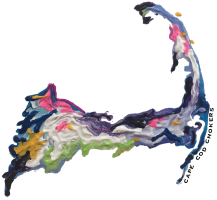
Is Real Gold Waterproof?
Share
Is Real Gold Waterproof?

A valuable metal that is frequently used in jewelry is gold. So before you decide to swim or take a shower while wearing gold jewelry, it is wise to consider whether gold can get wet. Although prolonged gold showering can cause the shine to fade, pure gold is not affected by water and can get wet. While chlorine and other harsh chemicals that might be present in the water won't harm pure gold, they can damage gold alloys.
When deciding whether or not to wet gold, there are numerous things to take into account. You might want to think twice before going swimming, taking a shower, or washing up while wearing gold jewelry due to the possibility of interacting with abrasives or harsh chemicals as well as the danger of losing jewelry. Try to dry your gold jewelry as much as you can by wiping it down with a soft, clean cloth. The simplest way to lessen the risk of damage from chemicals or abrasives is to take off your gold jewelry whenever you are taking a shower, swimming, or using harsh chemicals.

What Gold Jewelry Does Not Tarnish?
Gold jewelry is made using 4 different techniques: gold plated, gold vermeil, gold filled, and solid gold. Solid gold is without a doubt the best type of gold jewelry available because it won't tarnish. It is extremely valuable and will continue to be so for a very long time. Because the gold is a part of the metal and not just a coating, the color won't fade.

What Causes It To Tarnish?
Gold tarnishing is caused by oxygen and sulfur, much like rust on a piece of metal. Moisture will cause corrosion on the surface of the metals mixed with the gold, giving it a tarnished appearance when it reacts with oxygen and sulfur compounds. Some gold may tarnish more quickly than others due to the way your body functions, for example, if you eat bad food, you excrete more toxins from your sweat, thus making your gold tarnish much more quickly.
You will also notice more tarnishing if you frequently use cologne, perfume, hairspray, or detergents on areas of your body where your jewelry is located. Similar to the point made above, foods that are acidic may also be a contributing factor. Foods like onions, spices, pickles, and lemons can all hasten the tarnishing of gold jewelry.
Love the ocean? Wondering what type of jewelry you can wear while swimming? Read our article about Jewelry You Can Wear In The Ocean

What Karat Gold Does Not Tarnish?
24 karat gold is the only type of gold that doesn't tarnish. Since it is not alloyed with any other metals, this form of gold is the most expensive and is what most people envision when they think of "gold." Pure gold, like 24 karat gold, cannot tarnish because oxygen does not readily combine with it. Because base metals are alloyed with gold to make a stronger and harder ring, it is extremely rare to find a pure gold ring. As a result of the base metals being exposed to oxygen and sulfur, gold rings eventually tarnish.
One thing to keep in mind is that 24k gold plating does tarnish. It won't take long for the 24k gold plating to tarnish. However, there are steps you can take to slow down tarnished gold plating and prolong the appearance of your gold-plated jewelry. Last but not least, even though 24 karat gold doesn't tarnish, it doesn't necessarily mean it is the best type of jewelry for you, and some might even say you shouldn't make jewelry out of it since it's very soft and scratches and dents easily. It's also prone to bending and breaking.
Related: Pearl Luster: Can You Restore It?
